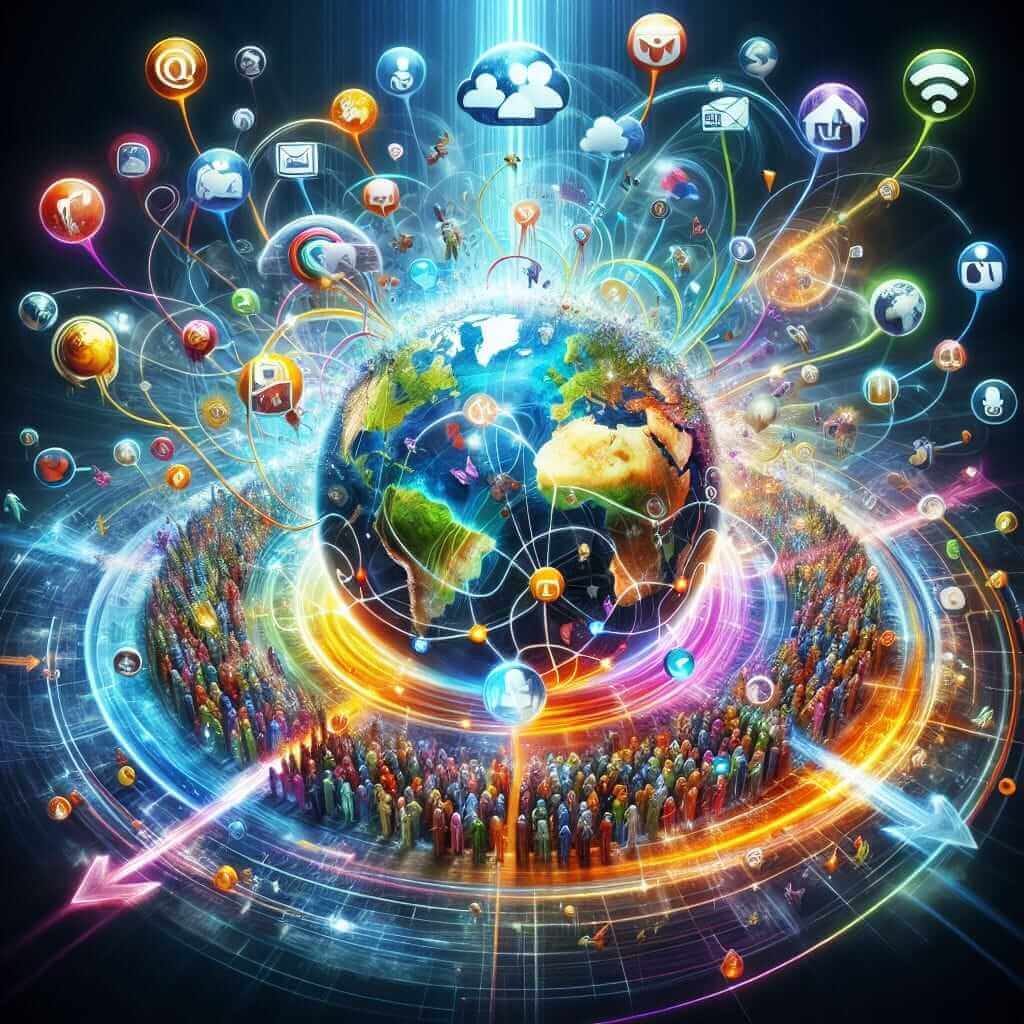In recent years, the omnipresence of digital platforms has radically transformed global communication. As an IELTS Writing Task 2 examinee, understanding the implications and being able to articulate them is crucial. This article dives deep into the topic and provides a comprehensive, structured essay to guide learners.
Introduction
Digital platforms have become an integral part of modern communication, enabling instantaneous interaction across the globe. In the context of the IELTS exam, understanding this topic can significantly bolster one’s ability to respond articulately to related questions. This article will introduce the topic, provide a sample task, analyze it, and offer a model essay, replete with crucial vocabulary and grammatical considerations.
Related IELTS Writing Task 2 Prompts
- “Digital platforms have revolutionized global communication. Do you agree or disagree?”
- “Discuss the impact of digital platforms on traditional communication methods in the global context.”
- “To what extent do digital platforms influence international business communication?”
Detailed Analysis
Chosen Topic Prompt
Let’s focus on the first prompt: “Digital platforms have revolutionized global communication. Do you agree or disagree?”
Topic Analysis
This prompt requires an argumentative essay. You must decide whether you agree or disagree with the statement and support your perspective with relevant examples and reasoning. The keywords here include “digital platforms,” “revolutionized,” and “global communication.”
Model Essay
Topic: Digital platforms have revolutionized global communication. Do you agree or disagree?
The advent of digital platforms has indeed revolutionized global communication. These platforms have ushered in an era where information exchange is seamless, bridging geographical gaps and fostering real-time interaction impossible two decades ago. I unequivocally agree that digital platforms have transformed the way we communicate globally for several reasons.
Firstly, digital platforms like social media networks, messaging apps, and video conferencing tools have made communication instant and borderless. Platforms such as Facebook, WhatsApp, and Zoom enable individuals to communicate in real-time, regardless of their physical location. This has significantly enhanced personal and professional interactions, making it easier to maintain relationships across continents.

Secondly, digital platforms have democratized information dissemination. In the past, communication was often hierarchical, with information flowing from centralized institutions to the masses. Today, platforms like Twitter and YouTube allow users to share information and ideas autonomously, giving voice to the voiceless and promoting a more inclusive communication ecosystem. This democratization has catalyzed social movements and facilitated global awareness on critical issues such as climate change and human rights.
Moreover, digital platforms have bolstered global commerce. E-commerce sites and platforms like LinkedIn have streamlined business communication, enabling companies to operate on an international scale with greater efficiency. The ability to collaborate with global teams via digital platforms has led to increased productivity and innovation, contributing to the growth of the global economy.
However, it is worth acknowledging the challenges posed by the rise of digital platforms. The prevalence of misinformation and the digital divide, where certain populations have limited access to these technologies, are significant concerns. Despite these issues, the overall impact of digital platforms on global communication is overwhelmingly positive.
In conclusion, digital platforms have undeniably revolutionized global communication by making interactions instant, democratizing information, and enhancing global commerce. While challenges remain, the benefits substantially outweigh the drawbacks, marking a profound shift in how we communicate across the globe.
Word count: 316 words
Writing Tips
When writing about the influence of digital platforms on global communication, keep the following in mind:
- Structure: Ensure your essay has a clear introduction, body paragraphs, and a conclusion.
- Vocabulary: Use advanced vocabulary and synonyms related to the topic. Avoid repetition.
- Examples: Provide specific examples and evidence to support your arguments.
- Cohesion and Coherence: Use linking words and phrases to ensure fluidity in your essay.
- Grammar and Spelling: Pay attention to verb tenses, subject-verb agreement, and punctuation.
Key Vocabulary
- Omnipresence (n) /ˌɒmnɪˈprezəns/: The state of being widespread or constantly encountered.
- Democratize (v) /dɪˈmɒkrəˌtaɪz/: To make something accessible to everyone.
- Dissemination (n) /dɪˌsɛməˈneɪʃən/: The act of spreading information widely.
- Ecosystem (n) /ˈiːkəʊˌsɪstəm/: A complex network or interconnected system.
- Autonomously (adv) /ɔːˈtɒnəməsli/: Acting independently or having the freedom to do so.
- Misinformation (n) /ˌmɪsɪnfəˈmeɪʃən/: False or inaccurate information.
- Collaborate (v) /kəˈlæbəreɪt/: Work jointly on an activity or project.
- Catalyze (v) /ˈkætəˌlaɪz/: Cause or accelerate a reaction or change.
Conclusion
In summary, the impact of digital platforms on global communication is vast and multifaceted. By practicing with this topic, you can better understand the dynamics of modern communication and enhance your IELTS writing skills. For further practice, consider tackling prompts like, “How have digital platforms impacted global cultures?” or “Evaluate the role of digital innovation in economic development.”
Related Links:
- The influence of digital transformation on educational access
- The influence of digital technology on workplace collaboration
- The importance of developing digital citizenship skills
By continually engaging with such topics, you can sharpen your analytical skills and boost your IELTS writing band score.